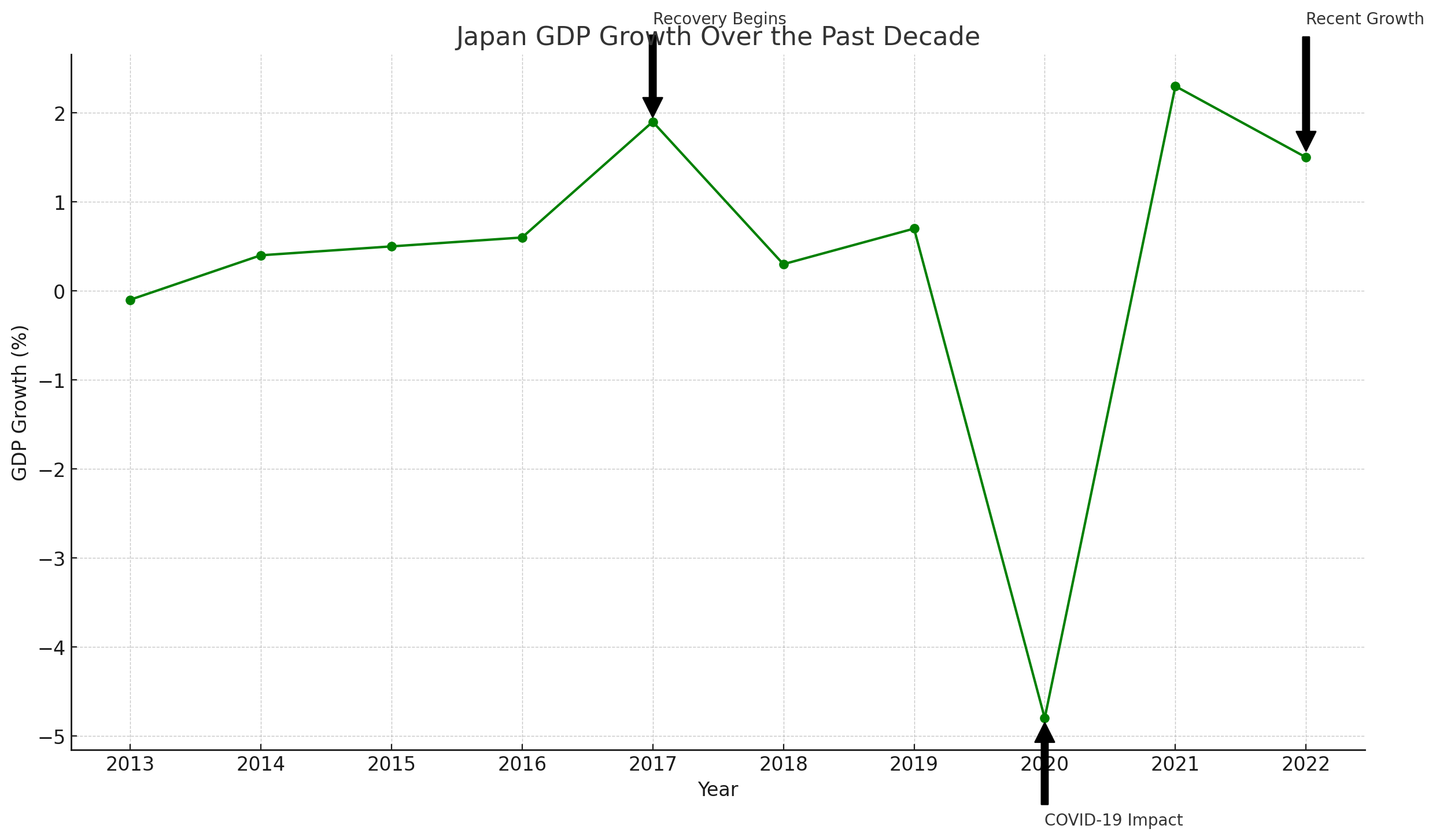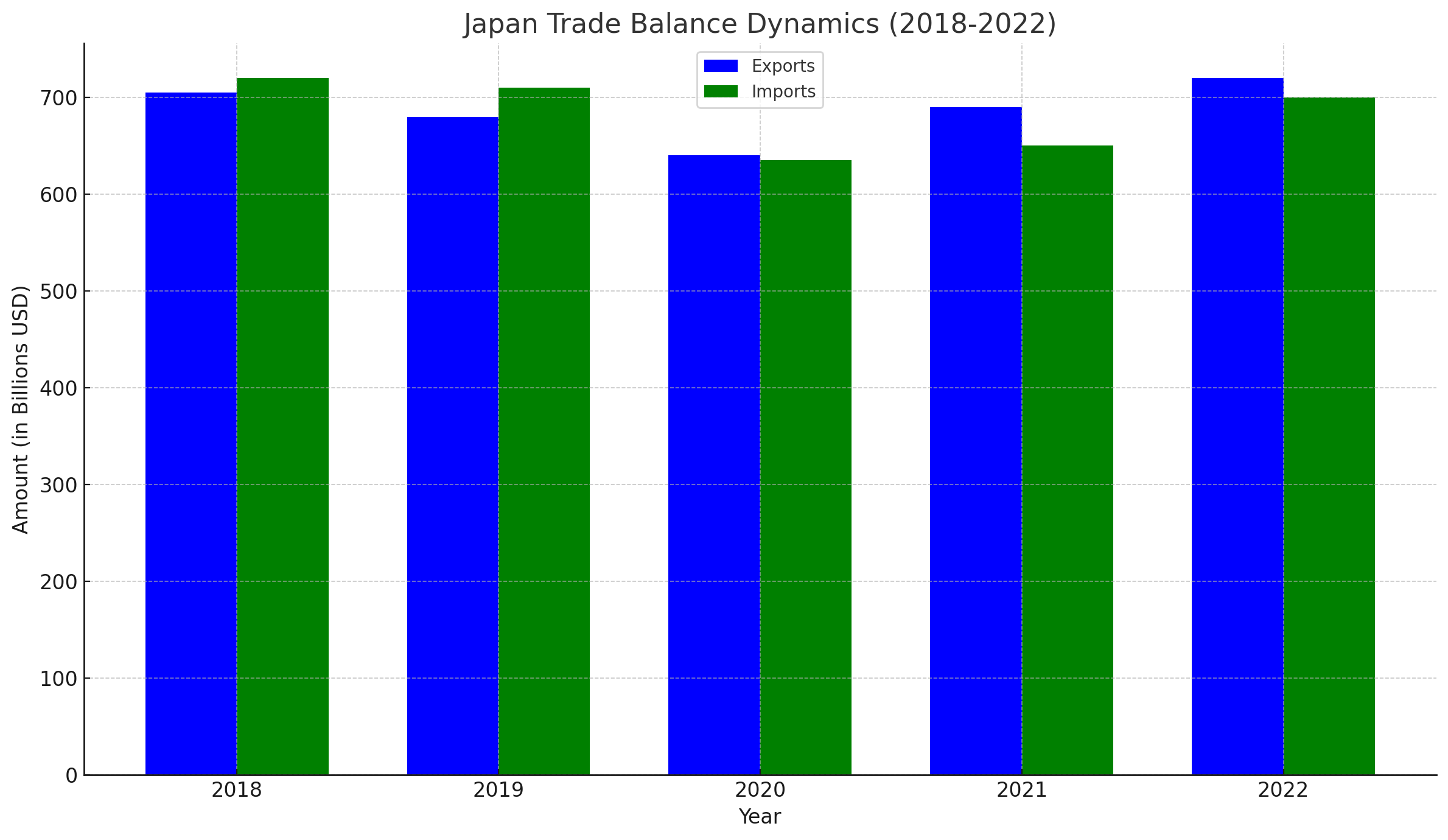
Japan's Economic Resurgence - Steering Towards Global Dominance
From technological breakthroughs and strategic policy shifts to navigating challenges of labor shortages and industry revitalization, Japan's economy is on a transformative path, impacting the global stage | That's TradingNEWS
The Resurgence of the Japanese Economy and Its Impact on the Global Stage
Economic Fluctuations: A Close Look at Japan's Recent Performance
Japan's economy has shown signs of significant transformation, despite recent contractions. February's reports highlighted a 0.8% annualized shrinkage, hinting at a complex recovery path. The dip in consumer goods shipments, notably durables and automobiles, has raised concerns. However, a silver lining emerged with a 1% uptick in private consumption, suggesting a rebound in consumer confidence fueled by anticipations of income growth. This shift is attributed to Japanese corporations' response to spring wage negotiations, resulting in notable pay raises.

The Semiconductor Revolution: TSMC's Strategic Move to Japan
The global semiconductor landscape is witnessing a pivotal shift, with Taiwan Semiconductor Manufacturing Company (TSMC) extending its dominance to Kikuyo, Japan. This strategic expansion, supported by substantial Japanese government investment, marks a critical step in diversifying the chip supply chain amidst geopolitical tensions and pandemic-induced disruptions. TSMC's Kikuyo facility not only signifies technological advancement but also underscores the growing importance of Japan in the global tech ecosystem. The move has catalyzed economic activity in the region, with a noticeable uptick in employment and real estate developments catering to the influx of TSMC workers and suppliers.
Monetary Policy Adjustments: Navigating Economic Recovery
Japan's central bank has taken bold steps to steer the economy towards stability. The discontinuation of negative interest rates after eight years reflects a strategic shift to stimulate bank lending and invigorate demand. Coupled with the bank's decision to hike interest rates for the first time in 17 years, these moves signal a growing confidence in Japan's economic revival. The emphasis on wage growth as a catalyst for consumer spending and inflation adjustment suggests a strategic approach to fostering a sustainable economic ecosystem.

The Dual Challenge of Bankruptcies and Labor Shortages
Despite positive economic indicators, Japan faces the dual challenge of rising bankruptcies and labor shortages. The record high in bankruptcies, with a 30% year-on-year increase, underscores the lingering effects of economic adjustments and inflationary pressures on businesses. The sectors most affected include services, retail, and food and beverage, indicating a broader economic strain. Concurrently, labor shortages, exacerbated by demographic shifts and a competitive global labor market, pose a significant hurdle to sustained economic growth.
Strategic Industrial Investments: Revitalizing the Chip Manufacturing Sector
Japan's commitment to reviving its semiconductor manufacturing sector through strategic investments and collaborations, notably with TSMC, reflects a broader vision for technological sovereignty and economic resilience. This endeavor not only aims to reduce dependency on external chip suppliers but also positions Japan as a key player in the global tech supply chain. The focus on developing a comprehensive ecosystem around chip manufacturing underscores the strategic importance of the semiconductor industry in Japan's economic blueprint.
The Road Ahead: Balancing Growth and Stability
Japan's economic trajectory is marked by strategic interventions, technological advancements, and a nuanced approach to monetary policy. The challenges of recent economic contractions, rising bankruptcies, and labor shortages are met with a concerted effort to stimulate growth through wage increases, strategic investments in critical sectors, and policy adjustments aimed at encouraging spending and investment. As Japan navigates these complex dynamics, its success in fostering a balanced and resilient economy will have significant implications not only for its own future but for the global economic landscape.
In conclusion, Japan's economic landscape is undergoing a transformative phase, driven by strategic policy shifts, technological advancements, and a focus on sustainable growth. While challenges remain, the concerted efforts to revitalize key sectors, adjust monetary policies, and address labor market dynamics underscore Japan's resilience and strategic vision. As Japan continues to navigate these changes, its trajectory offers valuable insights into the complexities of managing economic recovery and growth in a rapidly evolving global context.
That's TradingNEWS
Read More
-
SPYI ETF at $52.59: 11.7% Yield, 94% ROC and Near S&P 500 Returns
04.01.2026 · TradingNEWS ArchiveStocks
-
XRPI and XRPR Rally as XRP-USD Defends $2.00 on $1.2B XRP ETF Inflows
04.01.2026 · TradingNEWS ArchiveCrypto
-
Natural Gas Price Forecast: NG=F Eyes $4.30 if Storage Draws Tighten
04.01.2026 · TradingNEWS ArchiveCommodities
-
USD/JPY Price Forecast - USDJPY=X at 156.91: 157.75 Breakout Sets 160 Target as Fed Jobs Week Tests The Dollar
04.01.2026 · TradingNEWS ArchiveForex


















